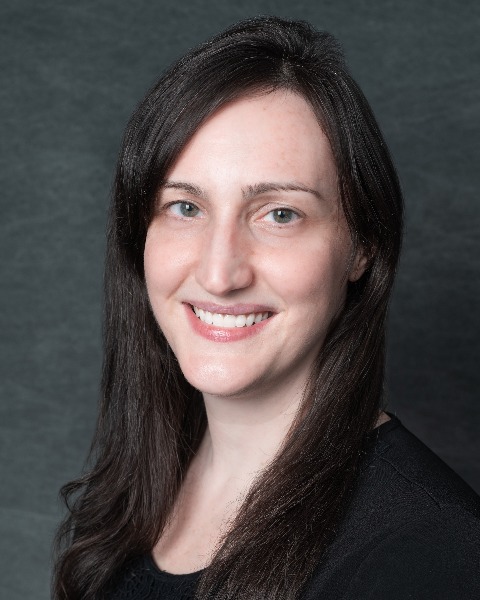Cardiology
Category: Abstract Submission
Cardiology II
96 - New England Congenital Cardiology: A Regional Evaluation of Physician Diversity and Training in Healthcare Disparities
Sunday, April 24, 2022
3:30 PM - 6:00 PM US MT
Poster Number: 96
Publication Number: 96.303
Publication Number: 96.303
Brooke T. Davey, Connecticut Children's Medical Center, Hartford, CT, United States; Tom A. Miller, Maine Medical Center, Scarborough, ME, United States; Jonathan N. Flyer, Robert Larner, M.D., College of Medicine at the University of Vermont, Burlington, VT, United States; Kristin Laraja, University of Massachusetts Medical School, Southborough, MA, United States; Susan Saleeb, Boston Children's Hospital, Boston, MA, United States; Jenifer Glatz, Children's Hospital at Dartmouth-Hitchcock, Manchester, NH, United States; Michael R. Epstein, Northern Light Eastern Maine Medical Center, Cape Elizabeth, ME, United States; Ruchika Karnik, Yale School of Medicine, Madison, CT, United States; Dominique Bannerman, Brown University School of Public Health, North Providence, RI, United States; Emily Bucholz, Boston Children's Hospital, Boston, MA, United States; Susan Dusenbery, Harvard Vanguard Medical Associates - Atrius Health, Boston, MA, United States; Raina Sinha, Connecticut Children's Medical Center, Hartford, CT, United States; Alicia Wang, University of Connecticut School of Medicine, Hartford, CT, United States; Olga H. Toro-Salazar, Connecticut Children's, Hartford, CT, United States; David A. Kane, Harvard medical school/ Boston children’s hospital, Boston, MA, United States; Emily P. Greenstein, University of Massachusetts Medical School, Sudbury, MA, United States; Caitlin Heyden, Connecticut Children's Medical Center, Hartford, CT, United States; David W. Brown, Boston Children's Hospital, Boston, MA, United States

Brooke Davey, MD (she/her/hers)
Pediatric Cardiologist
Connecticut Children's
Hartford, Connecticut, United States
Presenting Author(s)
Background: Congenital heart disease (CHD) patients span socioeconomic (SES), racial and ethnic groups; many face outcome disparities related to social determinants of health. Physician demographic background can influence interactions with patients and families.
Objective: Understand regional demographic composition, SES diversity, and healthcare disparities training of congenital cardiologists in New England.
Design/Methods: The New England Congenital Cardiology Association (NECCA) Health Disparities Working Group designed an electronic survey to assess demographics and diversity of cardiologists at membership institutions. Cardiologists were also asked about health care disparities training and resources to reduce disparities at their institution.
Results: The survey response rate was ~40% of regional congenital cardiologists (n = 63) across 6 states. Race/ethnicity was predominantly white (82.5%), with Asian (12.7%) and Hispanic (4.8%) representation. No cardiologists identified as black/African American, American Indian/Alaskan Native, or Native Hawaiian/other Pacific Islander. All were cisgender; 96.8% were heterosexual. Religions were Christian (43.5%), Jewish (22.6%), Hindu (4.8%), Buddhist, and Sikh (both 1.6%); 27.4% identified as agnostic/atheist/none. Cardiologists born outside the U.S. totaled 15.0%, of whom 55.6% are U.S. citizens, 33.3% legal permanent residents, and 11.1% visa recipients. Foreign medical school graduates included 17.7% of cardiologists. All reported an annual income >$120,000; 30.2% reported personal student debt. Parents of cardiologists had some college or more advanced education degree (83.9% mothers, 90.3% fathers). All spoke fluent English with 11 additional languages spoken fluently. Exactly 2/3 (66.7%) of cardiologists reported >5% of their patients did not speak a language they spoke fluently; 19.7% reported language interpretation services inadequately facilitated communication. Inadequate training to recognize and address health care disparities was reported by 61.9%; 66.7% reported inadequate resources to serve patients of all demographics.Conclusion(s): Our findings describe high SES backgrounds and low racial diversity amongst New England congenital cardiologists, with recognized deficits in training and resources to address healthcare disparities. Better understanding of how social, economic and cultural differences between providers and their patients influence disparity in outcomes may provide opportunity to further educate cardiologists. This survey is a first step in our regional commitment to understanding and improving health disparities.
Objective: Understand regional demographic composition, SES diversity, and healthcare disparities training of congenital cardiologists in New England.
Design/Methods: The New England Congenital Cardiology Association (NECCA) Health Disparities Working Group designed an electronic survey to assess demographics and diversity of cardiologists at membership institutions. Cardiologists were also asked about health care disparities training and resources to reduce disparities at their institution.
Results: The survey response rate was ~40% of regional congenital cardiologists (n = 63) across 6 states. Race/ethnicity was predominantly white (82.5%), with Asian (12.7%) and Hispanic (4.8%) representation. No cardiologists identified as black/African American, American Indian/Alaskan Native, or Native Hawaiian/other Pacific Islander. All were cisgender; 96.8% were heterosexual. Religions were Christian (43.5%), Jewish (22.6%), Hindu (4.8%), Buddhist, and Sikh (both 1.6%); 27.4% identified as agnostic/atheist/none. Cardiologists born outside the U.S. totaled 15.0%, of whom 55.6% are U.S. citizens, 33.3% legal permanent residents, and 11.1% visa recipients. Foreign medical school graduates included 17.7% of cardiologists. All reported an annual income >$120,000; 30.2% reported personal student debt. Parents of cardiologists had some college or more advanced education degree (83.9% mothers, 90.3% fathers). All spoke fluent English with 11 additional languages spoken fluently. Exactly 2/3 (66.7%) of cardiologists reported >5% of their patients did not speak a language they spoke fluently; 19.7% reported language interpretation services inadequately facilitated communication. Inadequate training to recognize and address health care disparities was reported by 61.9%; 66.7% reported inadequate resources to serve patients of all demographics.Conclusion(s): Our findings describe high SES backgrounds and low racial diversity amongst New England congenital cardiologists, with recognized deficits in training and resources to address healthcare disparities. Better understanding of how social, economic and cultural differences between providers and their patients influence disparity in outcomes may provide opportunity to further educate cardiologists. This survey is a first step in our regional commitment to understanding and improving health disparities.
